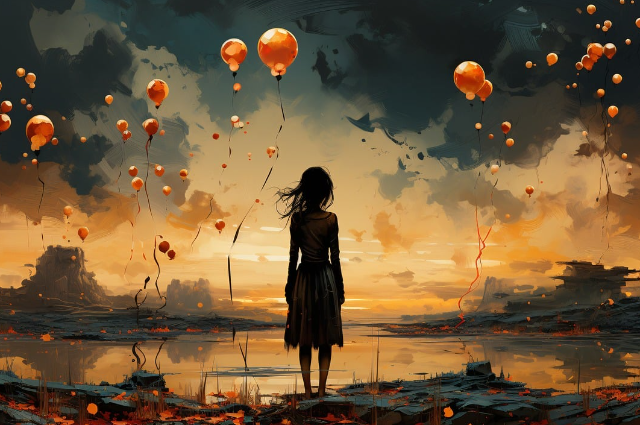
Image by Vilius Kukanauskas from Pixabay
Dystopian, or anti-utopian is often referred to as a society, infused with great suffering and injustice. Terms like ‘Hellish’ or ‘Chthonian’ are often coined with the specific intent to create a metaphorical parallel to the dystopian culture. A hypothetical society, where exists dehumanized and wretched people in a cataclysmic decline. Margaret Atwood, one of literature’s most celebrated authors of dystopian fiction, talks about the dystopian genre as a way into the future.
The rise of Dystopian Literature, as a subject, goes back to the 20th century. Although, the very famous Gulliver’s Travels by Jonathan Swift, published in the 18th century may mark the precedent finding of dystopian fiction. Many authors including George Orwell, Anthony Burgess and many other contributors like Orwell and Burgess would publish both, utopian and dystopian fiction to highlight the independent genre of dystopian literature.
The initial years of the 21st century indicated the surge in dystopian literature, reflecting the social anxieties, environmental uncertainties, loss of individual freedom, and ecological crisis. Authors often craft an era of dystopian culture, highlighting the technological dystopias, environmental degradation and much more. It collectively reflects the fear and hope and uncertainties, often tied with the future. This culture, brings to the fore, a sense of gloom, hopelessness and a dark or scary side of the world.
Since the exploration of dystopian literature, movies and series like The Hunger Games, Divergent and 1984 have been casted, to provide the general public with an insight into the dark literature, what I might term dystopia as.
A statement saying, “Dystopian fiction is not about predicting the future; it's about reflecting on the present” was rightly communicated through ‘The Handmaid's Tale', a speculative exploration of the fragility of democracy and the importance of safeguarding human rights. Moreover, Eric S. Rabkin, a well-known English professor and an author of more than twenty novels, explains dystopia as a feature to isolate the city from nature, metaphorical to the Garden of Eden.
Looking at the current environmental uncertainties, where ecological collapse and resource scarcity are no longer speculative fictions but urgent warnings, or the technological intricacies, where AI tools and AI robots are acquiring the positions of chief executive officer (as in the recent Poland case), readers are invited to navigate the shadows of tomorrow.
These picture reflect the current situations of Ukraine-Russia and Israel-Palestine war, a clear indication for need of an action, in order to prevent this world from dystopian predictions. These narratives, far from serving as nihilistic predictions, offer a lens through which we can scrutinize our current trajectory.
Thus, dystopian literature serves as a cautionary guide, urging us to safeguard the values of freedom, equality, and justice. Dystopian tales do not only reflect the cautionary tales of what could be, but also the need of this hour, a call to action for a world that strives for a better tomorrow.
